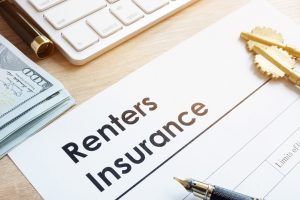 Courtesy of iii.org
Courtesy of iii.org
RENTERS INSURANCE
If you rent, rather than own, your home, have you bought renters insurance?
While your landlord may provide insurance coverage for the structure of your home, as a renter you are responsible for your own belongings. Renters insurance covers the loss or destruction of your possessions if they are damaged by a hurricane or other disaster listed in the policy. A standard renters insurance policy also includes ALE coverage if you are unable to live in your house or apartment due to damage caused by a hurricane.
Flood insurance is also available for renters. However, as for homeowners, the NFIP flood insurance policies for renters do not include ALE coverage.
Don’t wait to review and update your insurance until after you have a loss—there are few things worse than finding out you did not have the right kind of coverage when you are already filing a claim. So before hurricane season kicks off, make sure you’ve reviewed home or renters insurance policy with this Hurricane Season Insurance Checklist. Call your Insurance Professional if you have any questions. They can provide guidance on how to get the insurance protection that’s best for your needs and budget.
For information on how to make your home more disaster resistant, go to the Insurance Institute for Business & Home Safety (IBHS). For information on evacuation, go to the Federal Alliance for Safe Homes (FLASH).
 Courtesy of
Courtesy of  Courtesy of
Courtesy of  Courtesy of
Courtesy of